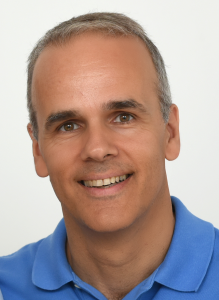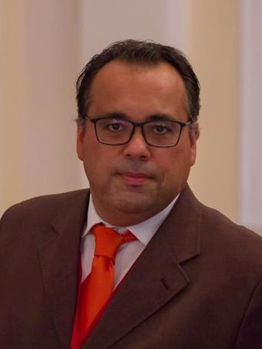 Andreas Mitrakas
Andreas Mitrakas
Head of Unit “Market, Certification & Standardisation” of the European Union Agency for Cybersecurity (ENISA),
Co-chair of the Stakeholders Cybersecurity Certification Group (SCCG)
Title: Cybersecurity certification: delivering measurable trust in the EU
Bio:
Dr. Andreas Mitrakas is Head of Unit “Market, Certification & Standardisation” in the European Union Agency for Cybersecurity (ENISA). He co-chairs the Stakeholders Cybersecurity Certification Group (SCCG).
Prior to joining ENISA, Andreas served as General Counsel in Globalsign and as a Senior Counsel in Verizon and Ubizen.
Andreas is a qualified lawyer and holds a doctorate in Law from Erasmus University of Rotterdam, a M.Sc. in Strategic Quality Management, from Portsmouth Business School, a LL.M. in Computer science and Law from Queen’s University of Belfast and a first degree in Law from the University of Athens.
Abstract:
The advent of cybersecurity certification that followed the adoption of the EU Cybersecurity Act has opened up certification to a range of possible application areas across cybersecurity products, AI, Cloud and trust services etc. Certification in the EU holds the promise of a binding yet discretionary and flexible regulatory instrument that may appeal to a broad range of stakeholders. However risks lurk when the voluntary certification framework is applied in an non-harmonised manner. As the first cybersecurity certification schemes have matured to acts adopted by the EU Member States, this presentation seeks to inform the audience on the important opportunity that cybersecurity certification holds for the digital single market.

Prof. Massimo Villari
Full Professor in Computer Science at University of Messina, Italy,
IT Security and Distributed Systems Analyst in Cloud and Edge Computing, virtualization and Storage, Federated Learning and one of the creators of Osmotic Computing Paradigm
Title: Foresee Possible Evolutions of Distributed Intelligence in Cross Domains
Bio:
Massimo Villari is Full Professor in Computer Science at University of Messina (Italy). He is actively working as IT Security and Distributed Systems Analyst in Cloud and Edge Computing, virtualization and Storage, Federated Learning and one of the creators of Osmotic Computing Paradigm. For the EU Projects “RESERVOIR” he leaded the IT security activities of the whole project. For the EU Project “VISION-CLOUD” and “H2020-BEACON”, he covered the role of architectural designer for UniME. He was Scientific ICT Responsible in the EU Project frontierCities, the Accelerator of FIWARE on Smart Cities – Smart Mobility. He is strongly involved in EU Innovation initiatives, and also, he covers the role of EU external expert. Currently, he is Scientific ICT Responsible for UniME of “TEMA” and “NEUROKIT-2E” Horizon Europe Projects. He is co-author of more of 250 scientific publications and patents in Cloud Computing (Cloud Federation), Distributed Systems, Wireless Network, Network Security, Cloud Security and Cloud, Edge and IoTs, and recently in Osmotic Computing and AI. He was General Chair of ESOCC 2015 and IEEE-ISCC 2016. In 2014 he was recognized by an independent assessment (IEEE Cloud Computing Transaction, Issue April 2014) as one of World-Wide active scientific researchers, top 27 classification, in Cloud Computing Area. He was General Chair of IEEE-ICFEC 2019 and General Co-Chair in IEEE-CCGRID2022. He was also General Chair of IEEE ISCC2022 and will be of IEEE ISCC2024. He is in the Stanford World’s Top 2% Scientists list of the Stanford University in Computer Science. He is a Co-Founder of UniME Spin-Off Alma Digit S.R.L since 2017. He was Rector delegate on ICT for whole University of Messina and Academic and Consultant for the Messina Municipality in the Area of Smart Cities. Currently he is the Head of Computer Science and Data Science Schools.
Abstract:
The evolution of AI is strongly affecting all Human Beings activities in any domain. In the last six years a revolution is started and much more in very last period with the use of AI Algorithms like ChatGPT, BART, BingChat and others. The question is What is behind this technology and what will be the future implications in adopting the Distributed Intelligence in Cross Domains like climate change driven domains, Smart Environments and Natural Disaster Management Systems, Health and pandemic issues, Energy Crisis, Autonomous Vehicle and their wide adoptions in V2X configurations, 6G, and so on? And more, May the Nature Inspire in this prospective? New Technological Smart Environments and Natural Disaster Management IT Systems what they require for a quick react to minimize risks and human downside effects?
Supported by the Horizon Europe TEMA project (Grant Agreement 101093003).
